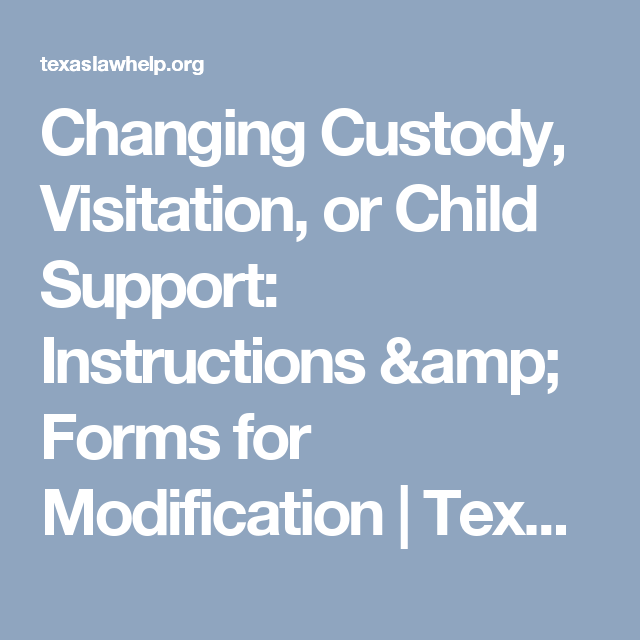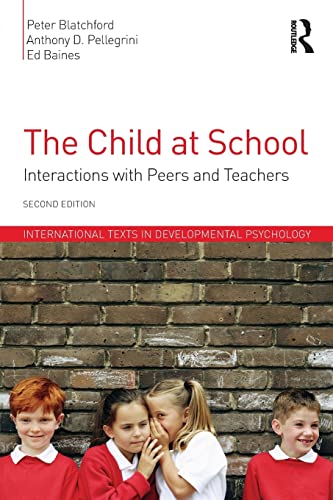How to win custody of your child as a mother
50 + Custody Battle Tips for Mothers
The most important custody battle tips that will help mothers make smart choices
by B. Robert Farzad
Here are over 50 essential custody battle tips for mothers
Hello moms. In this article about custody battle tips for mothers, we are going to tell you something you deserve to know - the blunt truth. We will guide you through the following.
- The truth about the California family law system,
- Its sometimes dysfunctional nature,
- The useless nature of the victim mentality, and
- How courage is one key to success.
I will show you how a fact driven, logical and straight line approach that focuses on the child's best interest is the most efficient means to success.
Custody battle tips for mothers will also teach you to stop feeling and start thinking. This is what I stated when Lindsey Ellison interviewed me for an article she wrote on the Huffington Post about the "secret to divorcing a narcissist. "
Strap yourself in because our battle tips guide for mothers is about to begin.
Custody battle tips for mothers starts with understanding the family law system
If custody becomes a battle, the first thing moms should understand is the lay of the land. First, there are only two ways a custody case finalizes:
- The first is through a settlement. Since you are reading this, we assume a settlement is not likely, or
- The second is through a family law judge making the decisions.
So when evaluating battle tips, realize that the forum (the family court) will have some limitations.
The family law system has limitations
What limitations exist?
- Your case will be among other cases on the family law judge's calendar on a court date. "Specially set" cases is one exception we see but even that is hit and miss. Specially set cases are those that are set with the understanding the hearing will start on that date. However, that does not guarantee the judge will dedicate an entire day or entire half day to your case.
 That depends on the county.
That depends on the county. - The family law judge has likely not read all of the paperwork on the case days or weeks in advance. He or she also likely does not know your case's facts cold. Unfortunately, a family law judge may sometimes learn your case very close to hearing or even during its presentation.
- Not every family law judge will have the same level of family law experience, knowledge, temperament or patience. Remember that a judge is elected or appointed to the bench. They don't go through years of family law judge training before they become family law judges. Many of the experienced ones learned on the job or used to practice family law. Some of them may have never practiced family law a day in their career as a lawyer.
- The judge has likely asked your attorney and that of the other parent to give a time estimate for the hearing. Most judges expect the lawyers to stick to that time frame. Some judge are more flexible than others.
 That means the judge may impose time limitations on the hearing's duration.
That means the judge may impose time limitations on the hearing's duration. - The family law judge will likely focus on the big picture, the most relevant facts and what is in the child's best interest,. The family law judge will likely not focus on every detail that one or both parents think is important. Sometimes, parents find criticism in just about everything the other parent does.
- Words like a "children's best interest" is not a black of white formula. The big D is not divorce, it is "discretion." That is what the family law judge has when making decisions on child custody issues.
That is why the first custody battle tip is understanding there are some limitations in the California family law judicial system. Those limitations affect everyone, not just you.
Understand financial limitations that may exist
We are highly experienced and knowledgeable child custody attorneys.
In all of the years we have practiced law, we have never had a client that had endless resources to litigate their child custody case.
Some may have a much greater ability to pay than others. Perhaps a parent on the other side has the same, greater or less ability to afford attorney's fees.
All these are factors to some extent on custody battle tips for mothers. We discuss the issue of attorney's fees later in this custody battle tips guide.
You must have courage when you face a custody battle
It will not work and all of the tips out there will not help you if you do not have the courage to do the right thing consistent with the children's best interest.
What do we mean by that? Here are 3 custody battle tips for mothers about courage.
1. Don't give up on what is in your children's best interest.
2. One of the most important custody battle tips for mothers is "have courage."
If a mother has been the victim of physical, emotional and even financial abuse, she may feel beaten down.
Mothers in such situations sometimes come to our family law firm feeling distraught and disillusioned.
But that is exactly when we help those moms step up and gain the courage to do the right thing for their children.
Remember abusers are bullies and bullies of any gender are ultimately insecure and cowards.
Many of them, when confronted by their abuse and held accountable for it, collapse under the pressure. But to confront them and hold them accountable requires a mother to take action - hire an experienced and knowledgeable family law attorney and seek court orders consistent with the children's best interest.
3. Realize there are no guarantees or assurances things will go your way.
If you had those guarantees, the decision to seek proper orders is easy. But that is not what courage really is. Courage is doing the right thing for your children and making the sometimes difficult decisions.
Six custody battle tips for mothers when separating from the father
Separation usually precedes divorce. Some spouses can handle living together while they go through a divorce. Most of them cannot. Here are six custody battle tips for mothers when separating from the father:
Most of them cannot. Here are six custody battle tips for mothers when separating from the father:
- Start consulting with family law attorneys immediately. Get an attorney early in the process. Getting advice at this stage can set up the entire case for a smoother process and more successful end.
- Be careful with your documented communication with the other parent. Text messages and emails may be used in court. Stating things in an emotional state is usually not wise.
- Don't be bullied into doing what the father wants to do if you do not reasonably believe what he wants is in the children's best interest. That is why you should seek the advice of an experienced family law attorney immediately - so you understand your options.
- Do not assume you have to move out just because the father demands you do so, even if the father owns the home you live in (regardless of whether or not you are married). An experienced family law attorney can provide you with your options.

- If the father is moving out and you are concerned about your financial ability to pay things such as a mortgage, remember that you have an option to seek temporary support, whether child, spousal or both depending on your facts. Learn about child support and spousal support in California by reading the following guides:
- California child support laws
- California alimony laws
- Do not attempt to represent yourself unless there is no other reasonable option. Even if there is no way you can afford an attorney, many of our California family courts have a self-help center to guide you through the paperwork. Use it.
Seven custody battle tips for mothers when obtaining temporary orders
What is a temporary order?
The temporary order is the one you obtain while the divorce or parentage case is pending. It is not the one at the end of the case that become a judgment.
To learn more about temporary orders, check out our guide on the California divorce process.
Custody battle tips for temporary orders.
- Get temporary court orders quickly if the father is likely to take the children and not return them or otherwise play games with parenting time.
- When thinking about what custody and visitation orders to seek, always think about the children's best interest. Think about what would promote their stability, health, safety, their education needs and general welfare.
- Don't take extreme positions when you seek temporary orders unless they are justified. Ask for sole legal custody and supervised visits when the child is or will be in danger. Those include for example when the father is physically or seriously emotionally abusive, has a substance abuse addiction that places the child in danger, or other circumstances. Asking for it as a starting point for negotiations or to use the child as leverage may blow up in your face and you may be labeled a restrictive gatekeeper as a result. In some cases, if you make willfully false allegations of abuse, you may lose custody.

- Check out our article on divorcing an alcoholic to learn more about how to handle a dissolution when faced with this addiction.
- Once you obtain temporary orders, stick to them. Getting orders and then allowing significant deviations from them with a difficult father generally backfires by creating a new status quo or further contention. Minor deviations and reasonable flexibility is fine but think about it - there is a reason you wanted court orders.
- Try not to separate siblings even if there is an age difference. The bond between siblings is too important.
- Always be truthful in the declaration you sign when you seek a temporary order. Statements under oath attached to the request for order must be truthful under penalty of perjury. This is not a game being played and contrary to popular belief, the liar doesn't generally win. The liar loses credibility and once credibility is lost, it is very difficult to get it back.
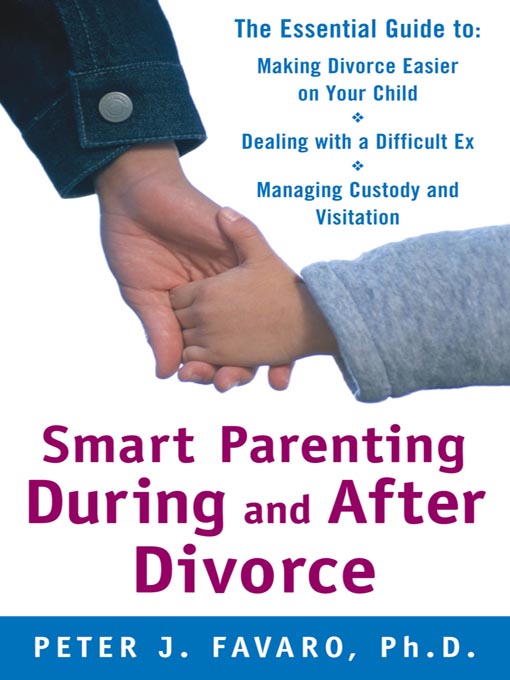
- If there has been domestic violence, as defined by the domestic violence prevention act, and you need protection, those temporary orders you seek should include a restraining order. Do not assume things will simply work themselves out. Your safety and that of your children should be your highest priority.
We Hope You Are Enjoying This Article
As you continue to read this article, we wanted you to know the attorneys at our premier family law firm are a phone call or email away.
Click below if you want to call us. Our office hours are Monday through Friday, 8 AM to 5 PM.
The contact form you see will send us an email.
Now, back to the article!
Call us
Email Us 24/7
Contact Us
Your First and Last Name *
Other Party's First and Last Name *
Your phone number *
Email Address *
The information you provide does not form any attorney-client relationship. Please only provide the information the form requests. We must first conduct a conflict check before we contact you. By contacting us through this form, you authorize us to communicate with you by phone or email and you agree to these terms and conditions.
Please only provide the information the form requests. We must first conduct a conflict check before we contact you. By contacting us through this form, you authorize us to communicate with you by phone or email and you agree to these terms and conditions.
I agree to the above terms and conditions *
Hidden website input
Five custody battle tips for mothers when obtaining trial orders
What is a trial? A trial is the final hearing in a divorce or parentage case that leads to a judgment. To learn more about trials, read our guide on California divorce trials.
Custody battle tips for trial orders
- How are the temporary orders going? Is it working out well? If so, consider whether it makes sense to ask for the temporary orders to become trial orders.
- Do not get yourself caught up in minutia. An hour or so a week here
or there may not be worth spending thousands and sometimes tens of
thousands of dollars in attorney fees.
 Think about the big picture even
if the father is caught up in this type of minutia and nonsense.
Think about the big picture even
if the father is caught up in this type of minutia and nonsense. - Regularly communicate with your family law attorney about the trial and do so early and often. Know the following:
- what you are seeking,
- why you are seeking it,
- the arguments that you have and the father has,
- the potential outcomes, and
- the budget to get your case through trial.
- Make settlement offers even if you do not believe the father will accept it. You and your lawyer should be proactively trying to settle the case on reasonable terms. Even if the case does not resolve, those documented settlement offers can help you when you seek attorney fees against the father for unreasonable positions he has taken. You should become familiar with Family Code 271.
- Trial will likely include your testimony under oath and in court.
Make sure you have read all of the court paperwork and are familiar with
what you will be testifying about.
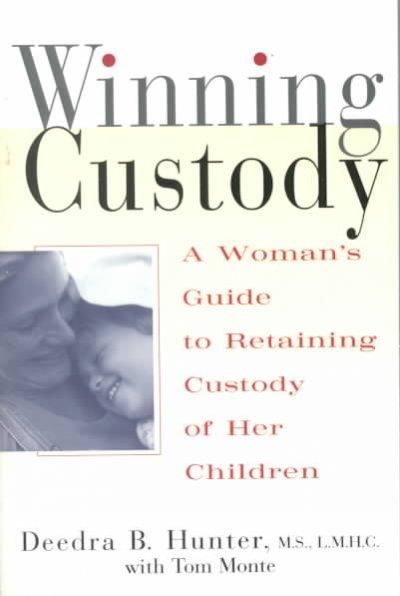 Set the meeting with the attorney to
discuss your testimony so you are prepared.
Set the meeting with the attorney to
discuss your testimony so you are prepared.
Three custody battle tips for mothers when obtaining post judgment modification orders
What is a post judgment modification?
After a trial or settlement and a judgment that happens as a result, a party may decide to seek a modification of custody, visitation (parenting time) or both. There must be proper grounds to seek such a modification.
Custody battle tips for post judgment orders
- Know the difference between a post judgment modification of child custody and a post judgment modification of visitation, which is also called parenting time. The legal standard is different for each one. Your family law attorney can explain this to you.
- Do not jump into a post judgment modification
unless and until you know you have proper grounds for it. Being unhappy
with a court's decision that led to a judgment is not a proper basis.
 In some circumstances, you may need to show a significant change of
circumstance since the court's order. The legal standard can get
complicated. Do not try to navigate this by yourself.
In some circumstances, you may need to show a significant change of
circumstance since the court's order. The legal standard can get
complicated. Do not try to navigate this by yourself. - Unless there is an emergency, there is often wisdom in trying to resolve post judgment modification issues before filing a request for order. Settlement discussions may lead to resolution. But even if they do not, you have at least documented your attempt to resolve the issues before you seek a court order. This may benefit you when you ask the court for attorney's fees against the other party.
Five custody battle tips for mothers when the father is abusive toward the child or children
Abuse can come in several forms. In custody battle guide for
mothers, we focus on physical or serious emotional abuse. This guide
does not discuss issues such as getting social services or law
enforcement involved. That is outside the scope of this guide.
If you reasonably suspect the father is being abusive toward the children and you decide to seek family law court orders, here are some custody battle tips.
We also encourage you to read our article on divorcing an abusive husband.
Custody battle tips when dealing with child abuse
- Take child abuse seriously. Do not assume the abuse will simply stop. The father or any parent that physically or emotionally abuse as a child will typically continue to inflict that abuse.
- If the abuse is documented through emails, text messages or other forms, make sure you bring that to your attorney's attention. Such documentation can be used in court to show the nature and extent of the abuse.
- If there are witnesses to the abuse, they should be subpoenaed to the hearing. Your lawyer can assist you with this.
- If the abuse presents an imminent threat of harm to the children,
consider seeking emergency orders.
 Some emergency family law orders may
need to be sought without notice to the other parent.
Some emergency family law orders may
need to be sought without notice to the other parent. - Do not ever lie, willfully understate or willfully exaggerate the nature or extent of child abuse. Any of these can get you into trouble.
Custody battle tips for mothers in custody move away cases
What is a move away case?
A move away case is generally one where one parent seeks to move the children to another county, state or even out of the country against the wishes of the other parent. We wrote an article titled "how do you win a child custody move away case in California" you will enjoy if you want to learn more about child custody move away cases.
What are some custody battle tips for mothers in move away cases? Let's take a look.
Seven custody battle tips for mothers when seeking a move away
For the purposes of this guide, we will assume the mother is seeking
the move away. Here are some custody battle tips for mothers who seek
to move with the child.
- Are you familiar with the current court order? Does it state what must happen before a move? Is it completely silent on the subject? Either way, you must present the order to an experienced family law attorney to tell you if your order addresses the move away situation and how.
- Be ready to present the court with specifics on the following:
- where the child will live,
- where the child will go to school,
- how and why his or her life there compared to here will be more consistent with the child's best interest, and
- additional facts as to why it is in the child's best interest to move.
- We believe that rarely can a self represented person properly present a move away case. Get legal help. Get experienced family law representation. Due diligence before you file the move away is critical.
- Through experienced legal representation, get familiar with the
legal standard for your specific move away case.
 It is not the same in
every case. If you do not understand the legal standard that applies to
your case, you will not know what facts are important.
It is not the same in
every case. If you do not understand the legal standard that applies to
your case, you will not know what facts are important. - Are you aware of what may happen if your move away is denied? If
not, get legal advice before you file anything. In our experience,
California family law judges assume you are moving with or without the
child when you file a move away case. That means if the court denies
your move away, the court then has to assume you are moving without the
kids. That means the father may get custody of the children. Is that a
risk worth taking?
- On this issue, there is California law on both sides of this argument but what we have written above has been the more common approach in our experience. That does not guarantee anything in your case. Get legal advice about your specific situation.
- Have you prepared yourself for the legal battle that may come with
the move away? You better do so.
 Move away cases can be some of the most
high conflict custody cases out there, right next to abuse cases.
Move away cases can be some of the most
high conflict custody cases out there, right next to abuse cases. - Trying to settle the move away issues even before you file is sometimes a good idea. That does depend on the case's facts. Even if it does not settle, you may be able to flesh out what the father's opposition will be.
How can mothers avoid custody battles?
To take you a bit outside the box, here are some custody battle tips for mothers to keep them out of custody battles.
- Don't be a restrictive gatekeeper who unreasonably frustrates the father's parenting time. It is one thing to be protective. It is quite another to take unreasonable positions and restrict the father's time for reasons that have little to do with the children's best interest. That type of conduct may work against you when the family law judge gets the case and makes orders.
- Do not alienate the children from the father.
 Parental alienation is a form of emotional abuse.
Parental alienation is a form of emotional abuse. - Fighting fire with fire is foolish. Don't do it. "If he is going to lie, so am I." Those words or anything close to it should never come out of a mother's mouth in a custody battle. Truth is always the best policy in family court. Remember moms, you are signing that declaration under penalty of perjury.
- Document misconduct. If the father is engaging in misconduct such as violating the court order, tell your lawyer about it. That way, your lawyer can document it if it is important and that can become relevant later on in court.
- Don't violate court orders. It is not worth it. The other parent may file a family law contempt action against you. A parent held in contempt may face fines, community service or even jail.
- Do not get yourself caught up in emotions that cause you to lose
focus on what is important. Yes, we get it, sometimes you feel like
"mama bear" and very protective of the children.
 But anger at the
father's infidelity, his failures as a husband or partner or issues that
have nothing to do with the children's best interest need to be set
aside. This isn't about you. It's about those children and that is all
the family court cares about in child custody cases.
But anger at the
father's infidelity, his failures as a husband or partner or issues that
have nothing to do with the children's best interest need to be set
aside. This isn't about you. It's about those children and that is all
the family court cares about in child custody cases. - Your gender is irrelevant. Do not walk into a California family court thinking it will make any difference. California law expressly forbids courts to make custody decisions based on gender.
- Attorney's fees and costs are available to you to seek against the
father if the father has a greater income and/or greater access to funds
to pay for fees. That means you do not have to lose a war of attrition
to the father who can outspend you. Read our article on Family Code 2030
to understand how a spouse going through a divorce and custody case can
seek fees against the father in certain situations. A similar set of
laws exist for unmarried parents.
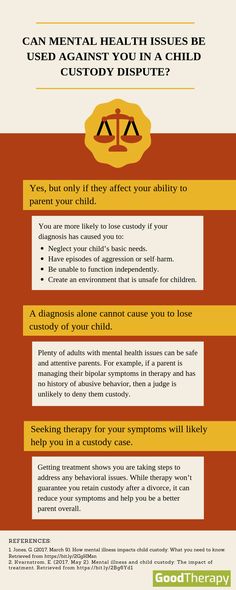
Want some additional reading?
Check out these great articles and guides:
- What is a 730 evaluation? We answer that question here. Read this article because it is important to understanding the private child custody evaluation process (often called a 730 evaluation) that often happens in custody cases.
- California child custody laws: This is a very comprehensive guide on California child custody. Many of those who read it have reported to me that not only did they love it but they gained a much better understanding of California custody law and procedure as a result.
- 8 reasons to lose custody of a child: Yes, it is possible to lose custody of a child and here are 8 common and surprising ways it could happen.
- We should not forget our article on how to get custody as a mother.
An important reminder for moms
Dear Moms,
This article is not legal advice nor is it intended to apply to your
specific situation. Please consult with an experienced California child
custody attorney for legal advice you need. This article is solely
intended for those who have a child custody case in California. I know
you probably knew that but it is worth making sure.
Please consult with an experienced California child
custody attorney for legal advice you need. This article is solely
intended for those who have a child custody case in California. I know
you probably knew that but it is worth making sure.
Your Strategy Session
About your strategy session
Southern California Offices
Locations
Our Services and Fees
Frequently asked questions
Strategy sessions are designed for those who are serious about their family law case, want to make informed and intelligent choices, and seek result-focused representation.
Was this article helpful to you?
Yes
No
Thank you, we appreciate your feedback!
How Can a Suicidal Parent Lose Custody?
by B. Robert Farzad
How to File a Motion for Drug Testing Against a Drug Addicted Parent
by B. Robert Farzad
Robert Farzad
OurFamilyWizard versus TalkingParents: Which App is Right for You?
by B. Robert Farzad
Can a Parent Stop a Child From Seeing the Other Parent?
by B. Robert Farzad
More Publications
6 Tips to Win a Child Custody Battle
A child custody battle can be one of the most stressful, yet important things you will ever engage in. After all, it’s your child’s well-being on the line.
Child custody disputes are rarely easy. There’s no magical formula for how to win a child custody case, but there are ways to improve your odds.
Read on for the top 6 tips to win a child custody battle.
1. Focus on the Best Interest of Your Child
This should go without saying, but sadly, a lot of parents lose sight of the most important thing: your child’s best interest.
Here’s why: Parent’s often get wrapped up in trying to “win”. Don’t shift away from what’s best for your child because you’re trying to beat your ex.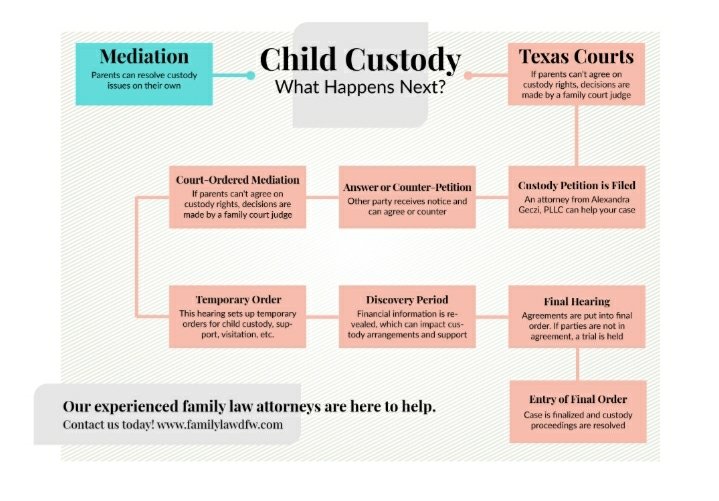
A heated custody battle takes a toll on everyone. Even babies are aware of and affected by the increased stress that goes hand in hand with separation and custody cases. Children feel anxiety just as adults do, and it can adversely affect their mood, sleep patterns, and other behaviors.
Older kids may be concerned about the unknowns – the possibilities of having to move, change schools, make all new friends. It’s common for them to worry that they’re somehow to blame, or that you or their other parent won’t love them anymore.
Keep in mind that this is an emotionally challenging time for everyone and it’s important to stay focused on your children and what’s best for them. Now’s the time to give them a little extra reassurance and emotional support.
As you start sorting through the details of your child custody agreement remember that children benefit greatly from having both parents play an active role in their life. It’s important to work out a fair parenting time schedule that gives your kids quality time with both of you.
The exception to the rule is when one of the parents is unfit to care for the child because they pose a risk of physical or emotional harm. If that’s the case it’s critical you consult with an attorney right away to help protect your child.
2. Hire an Experienced Family Law Attorney
When you’re facing something as serious as a custody battle, it’s crucial that you get in touch with an attorney quickly.
They know the law, have tried many cases just like yours, and can play both protector and peacemaker while working for the best-case outcome. Having an attorney guide you from the start can help you from making costly mistakes.
Some parents start the process based on false beliefs or with unrealistic expectations. For example, being awarded 100% full custody is highly unlikely.
Don’t assume just because you’re a woman that the court will favor you and you’ll have an easier time getting the custody agreement you want. That’s not the case.
Likewise, if you’re a father, don’t assume you don’t stand a chance because the courts favor mothers. Despite what you may have heard, that’s not how it works.
Despite what you may have heard, that’s not how it works.
When courts make decisions about child custody and visitation agreements they want to ensure both parents are a part of their children’s lives.
Your attorney will let you know what to realistically expect and how to create an equitable parenting agreement and visitation schedule that’s fair to everyone.
If you do have any concerns about the well-being of your children, hiring an attorney is extremely important. They will advocate for what’s best for your child, making their safety a priority.
3. Work Together to Keep Things From Getting Ugly
One of the biggest problems with child custody cases is that they can quickly become ugly. Parents often use this as an opportunity to take out frustrations regarding their relationship with each other rather than keeping the focus on their kids.
If you want to protect your interests and those of your child, you need to do your best to make peace and be civil.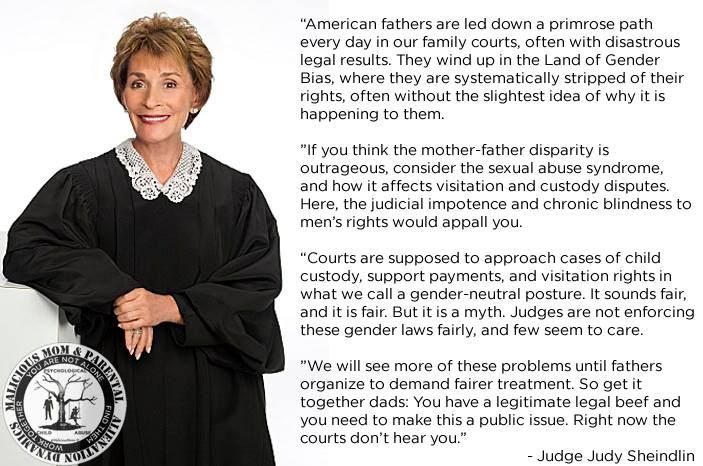 Try to separate from your personal feelings regarding your ex and keep any unresolved issues between the two of you out of your custody case. Focus only on issues that will have a direct impact on your child.
Try to separate from your personal feelings regarding your ex and keep any unresolved issues between the two of you out of your custody case. Focus only on issues that will have a direct impact on your child.
Regardless of where the two of you stand, it is always better to have an out-of-court settlement. You have more control over getting the best outcome for your child when your co-parenting relationship is collaborative, rather than combative.
If you’re unable to reach an agreement together, meditation services are available to help work through the details before going to court becomes necessary. Your attorney can help make these arrangements.
4. Address Issues That Could Work Against You
If you’re facing a child custody battle, you can expect every aspect of your life to be put under a microscope. Because of this, you need to understand what aspects of your life may not play to your advantage in court.
An attorney can help evaluate your personal circumstances and offer advice to give you the best chances of a favorable outcome. If any potential issues are uncovered, your attorney will advise you on what you can do to minimize the impact those things could have on your custody case.
If any potential issues are uncovered, your attorney will advise you on what you can do to minimize the impact those things could have on your custody case.
Also, keep in mind that perception is everything. Keep your communication with the other parent positive, and don’t say anything to them that you wouldn’t want a judge to see.
5. Exercise Caution With Your Social Media Use
In today’s day and age, it’s easy to jump on social media to complain about your ex. It might feel good to publicly vent and receive support, however, it’s not a good idea! If you publicly bash the other parent it could potentially be used against you as evidence of parental alienation.
Your activity on social media can be used as evidence in a variety of other ways too, and is sure to be closely scrutinized. What you say online can negatively impact the outcome of a custody battle so it’s important to exercise caution.
Social media posts can be used to assess your character and play a role in determining the outcome of your custody case. What you post can also be used as evidence of your state-of-mind, location history, spending habits or income, and as documentation of activities and people you’ve engaged with.
What you post can also be used as evidence of your state-of-mind, location history, spending habits or income, and as documentation of activities and people you’ve engaged with.
Anything that depicts you in a less-than-favorable light or exercising poor judgment could easily hurt your case. It’s advisable to err on the side of caution and refrain from using social media while you’re in the midst of a custody case.
If you have any questions or concerns regarding your online activities and how they might impact your child custody case you should consult with an attorney.
Another point to keep in mind regarding social media is that the same rules apply to your ex. If there is anything posted on social media or through private messages that you think might help your case you need to consult with your attorney right away. In order for social media activity to be presented as evidence, certain steps must be taken to ensure everything is properly documented and admissible.
6. Stay Positively Engaged in Your Child’s Life
The best thing you can do for the long-run is to exercise your rights and honor your responsibilities as a parent. Even before a formal agreement is made, take every opportunity to be a strong presence in your child’s life, and stay away from mistakes that could make you lose your parental rights.
This is an ongoing issue since you might need to modify your child custody agreement in the future, so it’s important to keep the previously mentioned tips in mind as you move forward.
So, How Do You Win a Child Custody Case?
Understanding how to win a child custody case means realizing that there may not be a clear “winner.”
The only true way to consider the outcome of a custody case a win is when decisions are made based upon the best interest of the children involved.
Fight For Your Child’s Best Interest and Call for a Consultation Today!
Don’t leave your children’s future up to chance or in the wrong hands.
With locations in Angleton, Webster/Clear Lake, and Pearland, the experienced family law team at Scott M Brown and Associates is here to help.
Call today to book a 1-1 consultation with a highly qualified attorney.
Post Views: 6,448
This author is an approved attorney by Attorney at Law Magazine.
Attorney's Website (832) 240-7470Scott Brown
Scott M. Brown is an experienced and passionate trial attorney who produces results. He is Board Certified in Family Law by the Texas Board of Legal Specialization (less than 1% of all attorneys in the state of Texas are Board Certified in Family Law). Scott was named to the 2016 Texas Super Lawyers (only 5% of the attorneys in the State of Texas are named to this prestigious list). He was also recognized as a Texas Super Lawyers Rising Star in 2012-2014 (only 2.5 percent of attorneys under the age of 40 in the state of Texas are named to this list).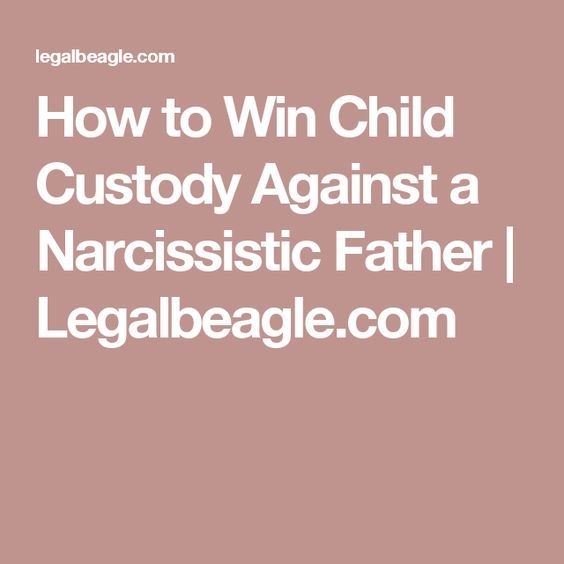 In 2015 and 2016, Scott was named as one of Houston’s Top Lawyers in H-Town magazine. He also possesses a 10.00 Avvo rating, which is the highest possible rating awarded by one of the nation’s premier legal ranking services. Scott’s focus on family law issues includes the toughest of divorces, modifications, complex child custody cases, enforcement actions, high net value divorce (including multimillion-dollar estates). Scott is a powerhouse and is devoted to his firm’s vision of giving his client’s the best possible legal representation. Scott is also a published author having contributed to the book Strategies for Family Law in Texas, 2013 ed.: Leading Lawyers on Handling Negotiations, Managing Client Expectations, and Navigating Recent Trends (Inside the Minds).
In 2015 and 2016, Scott was named as one of Houston’s Top Lawyers in H-Town magazine. He also possesses a 10.00 Avvo rating, which is the highest possible rating awarded by one of the nation’s premier legal ranking services. Scott’s focus on family law issues includes the toughest of divorces, modifications, complex child custody cases, enforcement actions, high net value divorce (including multimillion-dollar estates). Scott is a powerhouse and is devoted to his firm’s vision of giving his client’s the best possible legal representation. Scott is also a published author having contributed to the book Strategies for Family Law in Texas, 2013 ed.: Leading Lawyers on Handling Negotiations, Managing Client Expectations, and Navigating Recent Trends (Inside the Minds).
Controversial relationship: how to get the right to a child | Articles
In Magnitogorsk, a young man with difficulty was able to get custody of his younger sister after the death of his mother - the right to a child was unexpectedly declared by a previously convicted father, who had never been interested in their life. The story is not over yet - as in many other similar cases, the family will face long legal battles. "Izvestia" figured out what awaits minors, for the guardianship of which several parties claim at once.
The story is not over yet - as in many other similar cases, the family will face long legal battles. "Izvestia" figured out what awaits minors, for the guardianship of which several parties claim at once.
How children are divided in court
22-year-old Yaroslav Ionush, a member of the Ministry of Emergency Situations, has recently become a temporary guardian for his eight-year-old sister - their mother died two years ago. However, this had to be achieved through the courts.
Yaroslav said that their mother died at the age of 38, when his sister was six years old. He took responsibility for the child, since even during the life of his mother he replaced the father of the girl - the man who was his stepfather left the family in 2014 and later did not take any part in her life. He also did not come to the funeral, he did not express a desire to pick up his daughter. However, Yaroslav was denied guardianship of his sister, since his father is alive and he must first be limited in his rights.
contentious relationship
Photo: depositphotos/Kostia777
The courts turned out to be a difficult test - the girl's previously convicted father filed a lawsuit to transfer the child to him for upbringing, and guardianship, citing some kind of psychological examination, stated that the girl wants to live with him . Yaroslav suggested that her father decided to take custody of her daughter for financial reasons.
When the man tried to establish contact with the girl, he failed - she refused to go out with him, was not happy with his gifts. New forensic examinations confirmed that the girl had no connection with her biological father.
As a result, he was limited in parental rights, and in September Yaroslav received temporary custody of the girl - so far only for six months. After this period, legal proceedings may begin again.
In Moscow, a court recently took place in another similar case - former cohabitants argued for the right to raise a child. This story began in the winter of 2021 - Adamkhan Shukurov took his 10-month-old daughter and kept her for more than a week. It was possible to rescue the girl with great difficulty, but this was followed by litigation. At the trial, Shukurov's side claimed that his former cohabitant Oksana Smetankina was a bad mother, but could not confirm this. As a result, the court took the side of Smetankina, establishing her right to a child.
This story began in the winter of 2021 - Adamkhan Shukurov took his 10-month-old daughter and kept her for more than a week. It was possible to rescue the girl with great difficulty, but this was followed by litigation. At the trial, Shukurov's side claimed that his former cohabitant Oksana Smetankina was a bad mother, but could not confirm this. As a result, the court took the side of Smetankina, establishing her right to a child.
contentious relationship
Photo: ITAR-TASS/Stanislav Krasilnikov
Both cases ended successfully, but the child experiences great stress in such situations. For example, a few years ago, near St. Petersburg, a seven-year-old girl was taken away from her grandmother and handed over to her father, who was convicted three times and was serving a sentence at that time. It was possible to cancel the decision of the administration only through the court with the participation of the Commissioner for Human Rights in the Leningrad Region. And in Tyumen, at the beginning of the year, a whole epic unfolded, when the child was taken away from the relatives of the deceased spouse by force in order to give it to the father by a court decision.
And in Tyumen, at the beginning of the year, a whole epic unfolded, when the child was taken away from the relatives of the deceased spouse by force in order to give it to the father by a court decision.
What are the interests of the child
Lawyer Viktoria Dergunova notes that all disputes about children, regardless of who they are between, should always be resolved in the interests of the child. At the same time, the Family Code does not disclose this concept, so it must be interpreted in accordance with the Convention on the Rights of the Child and the practice of the European Court of Human Rights.
- In the jurisprudence of the ECtHR, the “best interests of the child” are primarily considered the following two: maintaining ties with the family, unless it is established that these ties are undesirable, and the possibility of developing in a healthy environment , Dergunova told Izvestia. - The court should not be engaged in predicting how a child's life will turn out in a family about which he has no memory, with whose members he has no emotional connection.
She notes that the interests of the child should be understood as a frame of reference within which the situation in which the child is located should be considered.
— The ECHR has repeatedly emphasized the inflexibility of Russian legislation in terms of regulating the issues of a child's communication with significant people who are not included in the circle of his close relatives within the meaning of Art. 55 Family Code ,” Dergunova said. — Inflexibility is expressed in the fact that Russian legislation contains an exhaustive list of persons entitled to contact with a child. The legislation does not provide for any exceptions, nor does it take into account the variety of family circumstances that may be taken into account in order to ensure the best interests of the child.
contentious relationship
Photo: depositphotos/dimaberkut
As a result, she notes, In practice, situations often arise when a person who is not a relative of the child, but who is deeply attached to him and cared for him, under no circumstances has the right to communicate with him .
Attorney Anton Zharov notes that the current legislation on guardianship and guardianship contains an indication of the priority of appointment as guardians or trustees only for grandparents, adult brothers and sisters of a minor ward, and great aunts and grandfathers, cousins and sisters are not covered by this rule. articles.
He notes that in Russia the family is elevated to the rank of something sacred - if a person is biologically related to a child, then he acquires significant rights, which leaves an imprint on judicial practice.
- As a result, the priority of the child's interests over the priority of parents suffers , - he explained to Izvestia. - Although, in principle, we have stipulated that the court should decide on the place of residence of the child in a disputable situation based on his interests. And a lot depends on the judge. The Supreme Court has repeatedly said that it is necessary to avoid a formal approach in such cases, that it is necessary to examine not only the materials of the case, but also communicate with people, and require guardianship to carefully examine relationships in the family. Another thing is that with the existing workload and qualifications, do judges always do this? Probably not always.
Another thing is that with the existing workload and qualifications, do judges always do this? Probably not always.
Another question is guardianship behavior, Zharov notes. In his opinion, the principle of its work can be described as "no matter what happens."
“Guardianship agencies often take the least resistance approach so that, God forbid, there is no scandal,” he says. - The interests of the child in this case often play a secondary role, because each state body seeks first to save itself, and then, if possible, to save the children. And after all, no one will condemn the guardianship authority for giving the child to the father - it is much easier to pretend that we do not see any other circumstances, that here is the father, he is the father.
contentious relationship
Photo: Izvestiya/Alexander Kazakov
What guides the court when choosing a guardian
O. E. Kutafina, co-founder of the ANO for the legal support of women and children "Mom in the right" Elena Grin notes: according to Art. 63 of the Family Code, parents have the priority right to raise their children over all other persons and have the right to demand the return of the child from any person.
E. Kutafina, co-founder of the ANO for the legal support of women and children "Mom in the right" Elena Grin notes: according to Art. 63 of the Family Code, parents have the priority right to raise their children over all other persons and have the right to demand the return of the child from any person.
“But the court has the right not to transfer the child if it considers that such a transfer does not meet its interests ,” she told Izvestia. - For each specific case, everything is investigated - how this parent took care of the child during the life of the other parent, the conditions created for the child, whether he remembers him, from the age of 10, the opinion of the minor himself is also taken into account.
Lawyer, specialist in family law Larisa Vetter also notes that the only legal representatives of the child are the parents.
- That is, , according to the meaning and norm of the law, it is first necessary to restrict the rights or deprive the rights of a parent if there are good reasons , - she told Izvestia. - And only then the person who takes care of the child can be considered as a potential guardian. Restriction and deprivation of rights are the most difficult cases. It is necessary to prove that the parent harms the child by his actions.
- And only then the person who takes care of the child can be considered as a potential guardian. Restriction and deprivation of rights are the most difficult cases. It is necessary to prove that the parent harms the child by his actions.
Grin notes that in such cases a forensic psychological examination of parent-child relations is carried out, which is otherwise called “psychological and pedagogical examination”. In the course of it, the personality of the child, father, mother and other relatives who plan to live or live with him, as well as the psychological characteristics of their relationship, are examined.
“The courts are very sensitive to the preferences of a child over 10 years old ,” Grin said. — In younger children, the preference question is rarely asked because the child's opinion largely depends on the opinions of the adults around him, and also because such a question can exacerbate the child's internal conflict and affect the results of the entire study.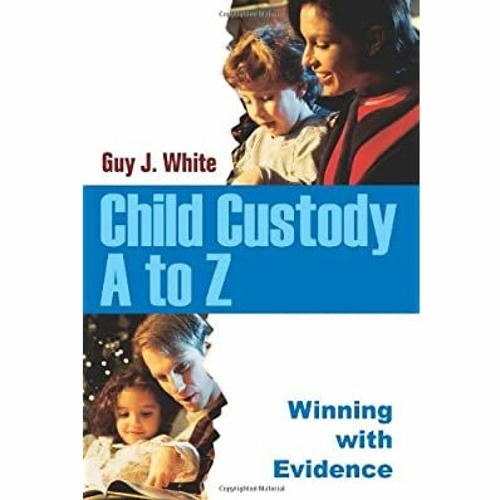
contentious relationship
Photo: RIA Novosti / Vladimir Song
If a question about preferences is asked and the child responds with a clear desire to live with one of the parents, then the expert must determine whether this desire is a free desire of the child or a repetition of other people's words and the result of psychological influence, Grin explains. According to her, at a younger age, when answering this question, the child more often chooses the parent in front of whom he experiences more fear. The hostile moods of the child in relation to one of the parents, the expert must also clearly understand and determine their nature - it happens that negative feelings are fueled by another parent and do not basically contain serious problems in the relationship between the parent and the child.
How parents deceive the court
“Guardianship is often regarded by negligent relatives as a tool for obtaining benefits and other types of state support ,” Alexey Gavrishev, managing partner at AVG Legal, told Izvestia. “However, thanks to the work of guardianship authorities, as well as the provisions of the law, in most cases such intentions are easily detected and mercantilely motivated relatives do not receive guardianship.
“However, thanks to the work of guardianship authorities, as well as the provisions of the law, in most cases such intentions are easily detected and mercantilely motivated relatives do not receive guardianship.
Victoria Dergunova also notes that it will be difficult for an unscrupulous parent to deceive guardianship and court - his sincere desire to take the child will not be enough here.
— It will be necessary to provide evidence that confirms the intention and desire of unscrupulous parents to take the child into the family: communication with him, transferring funds for his maintenance, interest in his fate, she says.
Larisa Vetter notes that, nevertheless, a parent who acts for any mercenary reasons can obtain custody of a child.
— There are no exact mechanisms and tools, everything rests on the inner conviction of the court, the impression that the situation makes, she emphasizes. - That is why it is important to have evidence that can refute the words.
Elena Grin notes that in this situation, an expert in the field of psychology must establish the motives of the parent, the characteristics of his personal relationship with the child, the characteristics of all family members.
contentious relationship
Photo: RIA Novosti / Vladimir Pesnya
How to get custody of a child
A potential guardian must collect a whole package of documents, including references from the place of work and from the place of residence, proof of income, a police certificate of no criminal record, a medical report on the state of health, an act of examination of living conditions.
But in order to prove to the court that the child should live with you, especially with a living parent, you must have strong arguments.
“You need to record your participation in the life of the child and at the same time the non-participation of the biological parent in it,” says Larisa Vetter. - School, clinic, institutions of additional education - everyone should be aware of the situation. Then, if necessary, they will be able to confirm the real state of affairs. In addition, you need to turn to a negligent parent for the maintenance of the child, oblige him to participate in life, receive education, and so on.
- School, clinic, institutions of additional education - everyone should be aware of the situation. Then, if necessary, they will be able to confirm the real state of affairs. In addition, you need to turn to a negligent parent for the maintenance of the child, oblige him to participate in life, receive education, and so on.
Victoria Dergunova also notes that it is necessary to collect certificates from the special developmental classes that the child attends, present evidence of the work of a psychologist and a conclusion about his psycho-emotional state.
— In these disputes, the main thing is to convey information to the court about what really is the “best interests of the child”, in connection with which the process of collecting evidence is difficult, — she notes.
How can a father get custody of a child in a divorce?
Igor, hello!
Art. 54 of the Family Code of the Russian Federation, every child has the right to live and be brought up in a family, the right to live together with their parents.
However, in cases where it is no longer possible for the parents to live together and there is talk of dissolution of the marriage, it is necessary to determine with which parent the child will remain.
In accordance with the rules of art. 24 of the RF IC, the court, when considering a divorce case, is obliged to determine with which of the parents the minor children will live after the divorce, as well as from which of the parents and in what amounts alimony for their children will be collected.
If an agreement is not reached between the parents on the issue of the place of residence of the child, then this dispute will be considered by the court, taking into account many circumstances. The main criterion for determining the place of residence of a child with one of the parents in a judicial proceeding will be the interests of the child himself. On this occasion, the Supreme Court of the Russian Federation in the Resolution of the Presidium of 10/27/1998, No. 10 determined that the court takes into account the age of the child, his attachment to each of the parents, brothers, sisters and other family members, the moral and other personal qualities of the parents, the relationship that exists between each of the parents and the child, the possibility of creating a child conditions for upbringing and development (taking into account the type of activity and mode of work of the parents, their financial and marital status, bearing in mind that in itself the advantage in the financial situation of one of the parents is not an unconditional basis for satisfying the requirements of this parent), and as well as other circumstances characterizing the situation that has developed in the place of residence of each of the parents.
10 determined that the court takes into account the age of the child, his attachment to each of the parents, brothers, sisters and other family members, the moral and other personal qualities of the parents, the relationship that exists between each of the parents and the child, the possibility of creating a child conditions for upbringing and development (taking into account the type of activity and mode of work of the parents, their financial and marital status, bearing in mind that in itself the advantage in the financial situation of one of the parents is not an unconditional basis for satisfying the requirements of this parent), and as well as other circumstances characterizing the situation that has developed in the place of residence of each of the parents.
Art. 57 of the Family Code of the Russian Federation, the child has the right to express his opinion when resolving any issue in the family concerning his interests, as well as to be heard in the course of any judicial or administrative proceedings. Consideration of the opinion of a child who has reached the age of ten years is mandatory. That is, if a 10-year-old child expresses his desire to live with one of the parents, then the court will take into account this opinion, unless it violates the interests of the child himself (if the parent with whom he wants to stay does not abuse alcohol, does not immoral way of life and does not create a threat to the life and health of the child by its behavior).
Consideration of the opinion of a child who has reached the age of ten years is mandatory. That is, if a 10-year-old child expresses his desire to live with one of the parents, then the court will take into account this opinion, unless it violates the interests of the child himself (if the parent with whom he wants to stay does not abuse alcohol, does not immoral way of life and does not create a threat to the life and health of the child by its behavior).
Moreover, arguments about the financial situation and the presence of a permanent job of the spouse with whom the child will not live are not taken into account by the courts. Because the obligation to support children is assigned to parents by the provisions of Art. 80 of the RF IC, and the fact that the child will live with his mother, for example, does not relieve the financially better-off father of the obligation to maintain him.
Igor, if you have any questions, ask, I will be happy to answer. You can also write to me in the chat and order a personal consultation or preparation of a document on your issue.